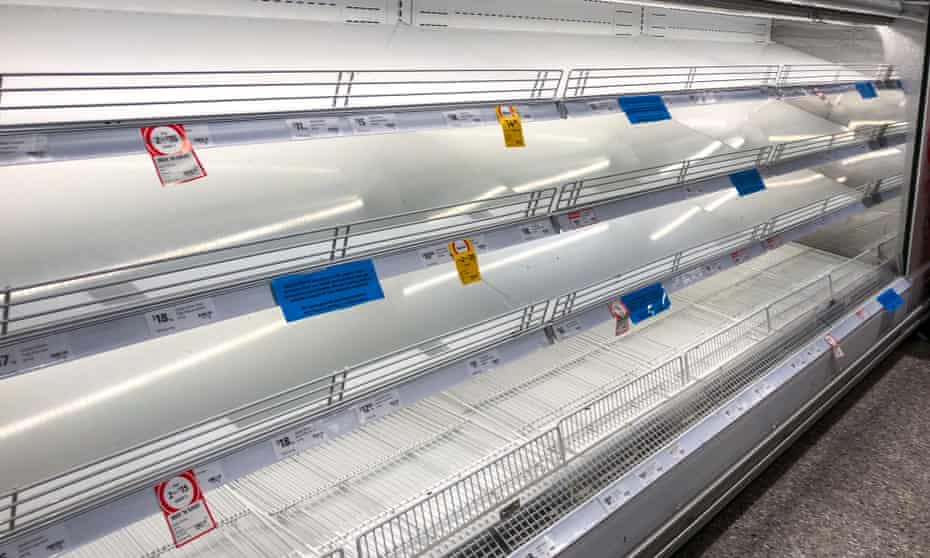Extract from The Guardian
Global heating ‘amplifies risks all the way through the supply chain, from farm to warehouse to supermarket shelves’

The report, released on Wednesday by Farmers for Climate Action, entitled Fork in the road: impacts of climate change on our food supply, comes after recent food shortages across the country caused by the pandemic, bushfires, floods and inundation of rail lines.
The report was prepared before the current flooding in Queensland and NSW lead to retail food shortages, but anticipated that global heating leading to a higher frequency and severity of extreme weather events would continue to put supply chains at risk.
Bartos said the latest report showed “there’s greater fragility in the food supply chain than had previously been thought due to the impact of climate change”.
It found that while risks could also arise from causes other than global warming, “what climate change does is raise the base level risk of extreme weather events – putting further pressure, like an additional weight on the scales, on the balance of risks faced in food supply every day.”
Bartos said Australians took for granted that food would always be available.
“Climate change disrupts this. It creates and amplifies risks all the way through the supply chain, from farm to warehouse to supermarket shelves,” he said.

Bartos said food shortages had a knock on effect, resulting in increased produce prices and increasing the costs of insurance and lending.
CEO of Farmers for Climate Action, Fiona Davis, called on governments to reduce greenhouse gas emissions as the most effective way to protect against the risks facing the food supply chain.
The report found increasing the diversity of supply chains, with multiple nodes and connections, would reduce some risk and that government investment in more numerous and diverse transport connections was vital.
But it warned inland rail, a flagship Coalition infrastructure project, may not be a panacea.
“Several organisations consulted for this project were concerned that inland rail could be disrupted by flooding at the same time as other road and rail links,” the report found.
It also recommended shorter supply chains, able to respond quickly to shortages. This was demonstrated during the pandemic when local butchers and greengrocers, especially in rural towns, were able to maintain continuity of supply through their networks with producers.
Bartos said farmers and supply chain operators are already investing in improving their risk management, but even the best systems would eventually collapse in the face of the impacts of climate collapse.
“Adaptation is not sustainable if climate change continues unabated. Deep cuts to emissions are therefore required to protect food supply and food supply chains,” he said.
“What the federal government action can do is to take what we already know is going to be a high risk and stop it from turning into an unmanageable risk.”
No comments:
Post a Comment